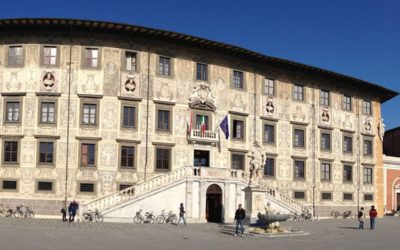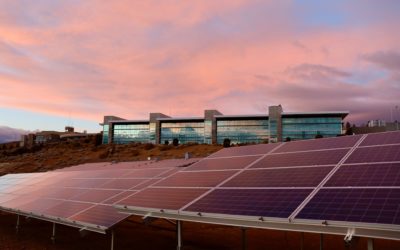cartif projects
NEVERMORE
New Enabling Visions and tools for End-useRs and stakeholders thanks to a common MOdeling fRamework towards a climatE neutral and resilient society.
Description
NEVERMORE will support excellence in climate research overcoming the current approach in evaluating climate change impacts and risks across sectors and adaptation and mitigation policies and measures. To achieve its ambitious goals, the project will develop an integrated common assessment framework consistent across scales for modelling , simulating and evaluating impacts and risks of climate change, as well as policy measures. The NEVERMORE approach, will integrate information from Climate science, Earth Systems , social system and impacts ands risk modelling methods across different scales: from national, EU and global scales to local and regional scales via five relevant case studies in Europe. Integrated socio-economic and climate scenarios will be used to ensure consistency between scales.
Objectives
- To foster practical usability of theoretical models in policy making and in the design of adaptation and mitigation strategies.
- To better understand climate change impacts and feedbacks by exploiting and integrating climate information, improving the representation of climate and Earth system processes.
- To enhance the understanding of the interaction, complementarities and trade-offs between adaptation and mitigation strategies.
- To develop an integrated common assessment framework for the modelling, simulation and evaluation of climate change impacts; risks and vulnerabilities being demonstrated in five relevant case studies in Europe.
- To develop an ICT toolkit for assessing and understanding climate change impacts and risks, as well as the effecys of mitigation and adaptation strategies, fostering climate action
Actions
- Scientific and technical coordination ensuring the consistency of project results.
- To develop an analysis of potential improvements to be integrated as new functionalities in the climate module of WILIAM IAM.
- To coordinate the methodology for climate change assessment including impacts and risks assessment, as well as the methodology to model adaptation and mitigation policies at different scales.
- Case study characterization supporting the Murcia case study in the multi-sectoral impact and risk assesment,
- Design of the common ICT toolkit architecture and their associated data storage. Participation in the ICT toolfit development.
Expected Results
- An improved climate module for WILIAM IAM.sks.
- A methodology for climate change assessment including impacts and risks.
- A methodology to model adaptation and mitigation policies at different scales.
- A deep analysis of each case study with focus on the impacted sectors by the changes in the cliamte and past experiences in adaptation and mitigation.
- A set of novel tools to evaluate adaptation and mitigation policies understanding climate change impacts and risks.
R&D Line
Research and develipment o Integrated evaluation models for the support in the definition of policies in matter of climate change and energy transition.
Horizon Europe
Nº 101056858

Total Budget: 6,687,425€
CARTIF Budget: 613,287.50€
CARTIF Grant: 613,287.50€
Duration: 01/06/2022 -31/05/2026

Responsible
Iván Ramos
Energy Division
Networking
Natural Resources and Climate Projects:
THUNDER
THUNDER project aims to overcome existing barriers hampering a wide adoption of DCs waste heat recovery strategies, providing an innovative, efficient and cost attractive Seasonal Thermal storage based on Thermochemical Materials
SCO2OP-TES
SCO2OP-TES focuses on the development of technologies for storing electricity in the form of heat, which is then converted back into electricity (P2H2P – power-to-heat-to-power).
HYDRA
HYDRA focuses on understanding and addressing the potential impact of widespread hydrogen use on climate, environment and society. The project assesses a scenario of high hydrogen penetration in the energy mix.
INHERIT
The overall vision of INHERIT is to create a systematic methodology, accompanied by leading-edge Information and Communication Technologies (ICTs), such as Internet of Things (IoT), Artificial Intelligence (AI) and (big) data analytics, and associated social/behavioural practices, towards sustainable, inclusive and resource-efficient Cultural Heritage (CH) solutions.
IAM COMPACT
IAM COMPACT supports the assessment of global climate goals, progress, and feasibility space, and the design of the next round of Nationally Determined Contributions (NDCs) and policy planning beyond 2030 for major emitters and non-high-income countries.
BUILDSPACE
BUILDSPACE aims to couple terrestrial data from buildings with aerial imaging from drones equipped with thermal cameras and location annotated data from satellite services to deliver innovative services for the building and urban stakeholders and support informed decision making towards energy-efficient buildings and climate resilient cities.
ECOESION_TOOL
The main objective of Ecoesion_tool project is the implementation of a web-based, easy-to-use and user-friendly tool based on the Ecoesion model developed by the University of PISA (UNIPI)
PACES Logroño
The aim of the project is the preparation and elaboration in the framework of the Deal of Majors for the Climate and Energy, of the Plan of Action for the Climate and Energy Sustainable of the municipality of Logroño.
SPANDAM
Development of a simulation tool to support decision-making and the design of public policies aiming to achieve a balanced and sustainable demographics, socieconomic and environmental development in areas affected by depopulation.
RethinkAction
Development of a cross-sectoral decision-making platform to foster climate action, focusing on climate mitigation and adaptation.
RENERMap
The main objective of RENERMap is to achieve a detailed analysis of the renewable potential available at local level, including both roofs and municipality land, to respond to the demand of energy that it generates, and to help to achieve the development of self-sufficient energy municipalities.
EACC_Extremadura
Extremadura Strategy for Adaptation to Climate Change 2021 – 2030 aims to analyse the influence of climate change on the Autonomous Community of Extremadura , identifying impacts, risks and climate vulnerabilities on the main strategic sectors of the region.
e-PARCERO
ePARCERO project will develop an automated prototype that allows the identification of cadastral parcels without current use in demonstrators located in relevant areas of Castilla y León, taking into account the different conditions that may affect each parcel.
BUILTHUB
BUILTHUB aims to develop a strctured and inclusive reliable data collection approach on the EU building stock, as well as an easy to access & use datahub, in the shape of a strctured web-based platform.
EACC Val
EACC Val project aims to analyze the influence of climate change on the municipality of Valladolid, identifying climate risks and vulnerabilities and proposing actions that affect its future climate adptation.
LOCOMOTION
LOCOMOTION will design a set of IAMs that will provide politicians and other stakeholders with assessment tools to analyze the feasibility, effectiveness and costs of the different sustainability policies and strategies.
ELISE Energy Pilot
The aim of the ELISE action is to promote a coherent and consistent approach to the sharing and reuse of location data across borders and sectors.
CCliMAP
The CCliMAP project has the general objective of providing resources and instruments to aid decision-making for the reduction of greenhouse gases
TEC4ENERPLAN
The main objective is the development of advanced methods for energy planning at different scales (building to region), that support the development of tools. It will offer a working basis to those entities responsible of the generation, deployment and evaluation of energy actions aimed at the compliance with the energy efficiency objectives 2020–2050



















